Opinion: Ginsburg right about Trump
Why Ruth Bader Ginsburg was right about Trump
Story highlights
- Paul Waldman: It was mistake for Ruth Bader Ginsburg to slam Trump, but she did it because he is a threat to democracy
- He says she has devoted life to upholding Constitution; her issue with Trump is about more than political differences
Paul Waldman is a senior writer with The American Prospect, a left-leaning magazine, and a blogger for The Washington Post. The opinions expressed in this commentary are solely those of the author.
(CNN)Donald
Trump has a way of making ordinarily reasonable people get
over-agitated. His campaign for the presidency has been decried not just
by Democrats but by Republicans, foreign leaders, writers and artists
and actors, and now Supreme Court justice and pop culture icon Ruth Bader Ginsburg.
When
Ginsburg criticized Trump in a few interviews earlier this week, the
overwhelming reaction, even from those who admire her as a jurist, was
that she had made a mistake.
But was she wrong?
Supreme
Court justices are supposed to be above partisanship, at least
pretending not to be concerned with who wins an election. After all, we
wouldn't want Clarence Thomas speaking at the Republican convention or
Sonia Sotomayor out stumping with Hillary Clinton; that would undercut
the legitimacy of the court as the final arbiter of legal disputes, many
of which involve the President and the administration.
After a couple of days of criticism, Ginsburg released a statement
saying, "On reflection, my recent remarks in response to press
inquiries were ill-advised and I regret making them," because "Judges
should avoid commenting on a candidate for public office. In the future I
will be more circumspect."










We
all understand that Supreme Court justices care about partisan
contests, since they have ideological preferences just like anyone else.
Ruth Bader Ginsburg apparently wants Clinton to win, just as her
colleagues may well want someone else to win.
But
if one of the other candidates had become the Republican nominee,
there's no way she would have made these kind of remarks. She didn't do
it because of Trump's plan to cut taxes for the wealthy, his proposal to
repeal the Affordable Care Act, or his opposition to abortion rights.
All the other candidates shared those positions.
She
did it because Trump presents a unique threat to democracy itself, one
that stands outside ideological and partisan differences.
Trump
is that kind of threat not because he knows virtually nothing about
policy (though that's true), or because he's crass and crude (also true)
or because he lies constantly (undeniable). He's a threat because he
rejects so many of the basic ideas on which our democracy is based.
He talks about
"open[ing] up the libel laws" so he can sue news organizations to
punish them for being critical of him. He has spoken again and again not
just about his admiration for dictators, but his approval of their most
brutal methods.
When he says about North Korean dictator Kim Jong-Un,
"You gotta give him credit" for taking over the government and killing
his uncle, it's not a surprise, because we've already heard him praise Vladimir Putin's strong leadership, show his admiration for Saddam Hussein's ability to kill terrorists without the inconvenience of legal proceedings, and extol the virtues of the Chinese government's crackdown on democracy protesters
in Tiananmen Square ("When the students poured into Tiananmen Square,
the Chinese government almost blew it. Then they were vicious. They were
horrible, but they put it down with strength. That shows you the power
of strength").
Trump has been even more specific about his intention to not just break U.S. law but literally commit war crimes. He expresses his regret that ISIS chops off people's heads, but in America we have laws we have to obey that prevent us from reacting in kind.
He promises to begin using torture on
prisoners once again (including "a hell of a lot worse than
waterboarding"), despite the fact that both U.S. law and international
treaties to which we are a signatory prohibit it.
He proposes
that we should not only go after terrorists but kill their families,
which is not just a war crime but an act so horrifically immoral that it
should have destroyed his candidacy the moment the suggestion slithered
from his mouth.
So
one can understand why someone who has devoted her life to studying,
interpreting and upholding the Constitution of the United States would
conclude that Donald Trump is not just a candidate with whom she has
political differences, but something altogether different.
And when Trump responded to her criticisms by tweeting,
"Justice Ginsburg of the U.S. Supreme Court has embarrassed all by
making very dumb political statements about me. Her mind is shot -
resign!" he demonstrated what she was talking about.
It
may be a breach of decorum for a Supreme Court justice to criticize a
presidential candidate, but it's much worse for someone who would be
President to call a justice feebleminded and press her to step down.
You
can still argue that Ginsburg should have kept her opinion to herself,
and I wouldn't disagree. The way she did it wasn't going to persuade
anyone who didn't already agree, and there's value in at least
maintaining the appearance that Supreme Court justices are above
partisan politics.
But Ginsburg's
breach of decorum is a reminder that in Donald Trump, we're not dealing
with an ordinary candidate, but someone who threatens the very
underpinnings of the American system.















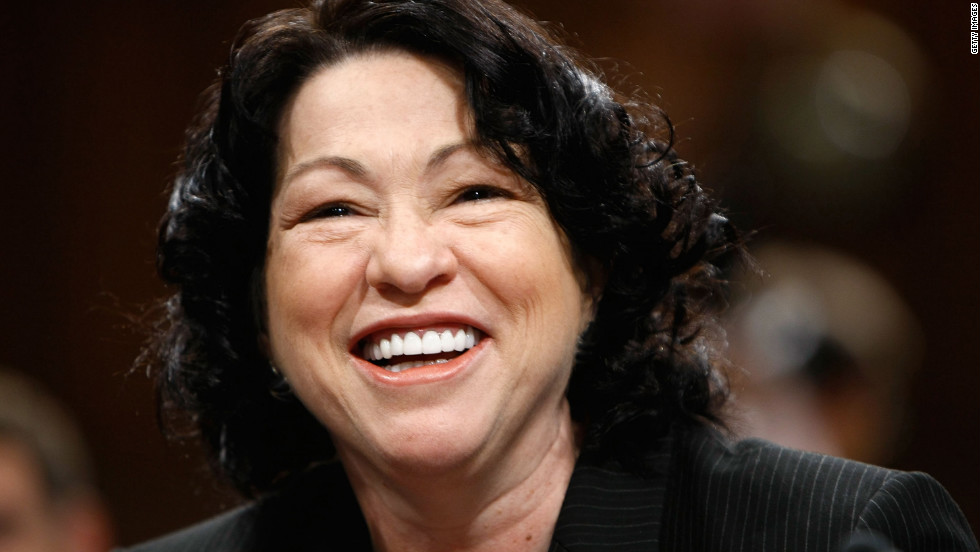
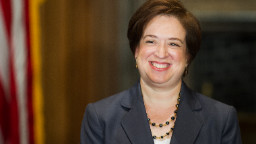
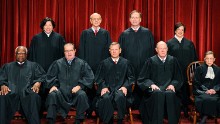
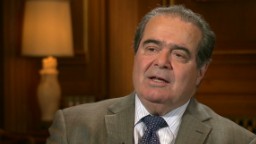

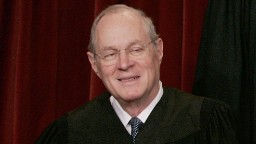




No comments:
Post a Comment